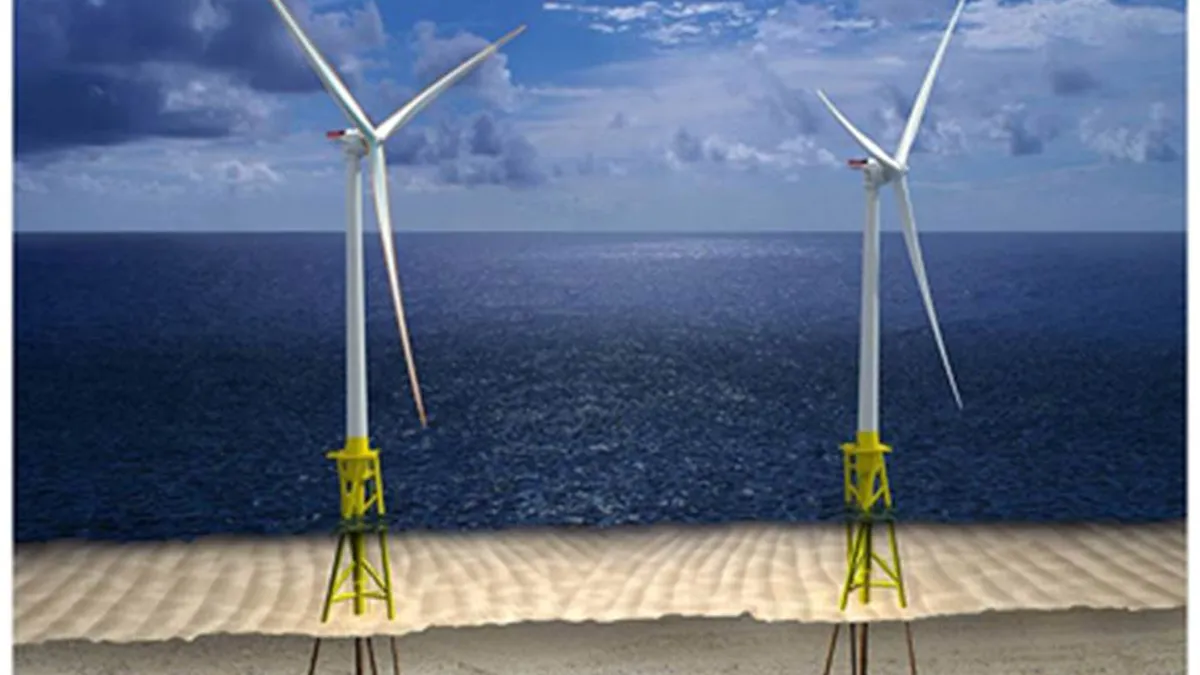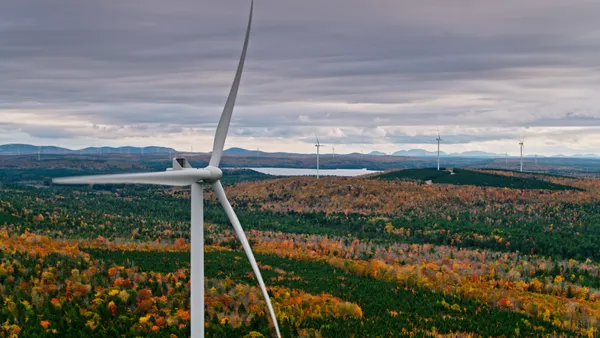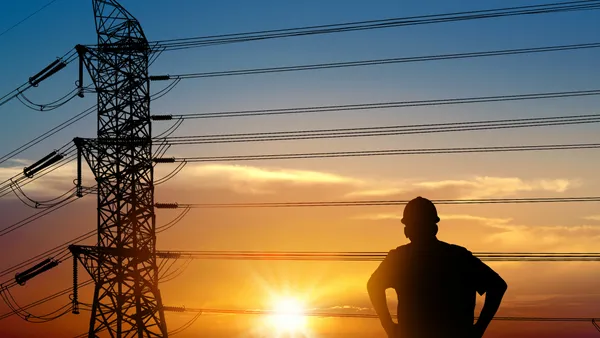Dive Brief:
- Dominion Energy customers will see their bills grow by more than double the amount that regulators initially expected as the utility complies with the Virginia Clean Economy Act (VCEA), according to staff testimony filed on Tuesday with the Virginia State Corporation Commission (SCC).
- SCC staff noted that the four scenarios in Dominion's Integrated Resource Plan (IRP) overbuild resources and don't include a least-cost option compliant with the new law. By 2030, SCC staff said residential customers would pay an added $807.84 per year.
- The SCC released analysis earlier this year, while the VCEA was still being considered, that estimated Dominion customer bills would increase as much as $333.60 per year by 2030. At the time, proponents of the legislation criticized the staff analysis for focusing on costs without quantifying the savings from energy efficiency and other measures.
Dive Insight:
Stakeholders expected an increase in customer bills from Dominion, the largest energy provider in the state, as it complies with the sweeping legislation enacted this year. However, the projected increase was steeper than anticipated, and staff commented repeatedly that the utility did not include a least-cost plan that would remain compliant with the VCEA.
In one of six staff testimonies, Gregory Abbott, deputy director of the SCC, identified three high cost components across all four of Dominion's scenarios: a second offshore wind buildout, a pumped storage unit, and continued operation of an "uneconomic" coal-biofuel hybrid plant through 2045.
"Given that the VCEA is a major re-set of energy policy in Virginia," staff attempted modeling plans with and without those more expensive components, Abbott said in his testimony, to create "a more robust record" for the SCC on the various combinations allowed to meet the requirements of the bill.
Dominion did not comment in time for publication.
In Dominion's four scenarios presented as A through D, the utility sought to add between 6.7 GW and 18.8 GW of solar, up to 2.7 GW of storage and up to 5.1 GW of offshore wind in the next 15 years.
The plans ranged from around $44 billion (Plan A) to $84.3 billion (Plan D), according to testimony from David Dalton, senior utilities analyst with the commission.
All four plans overbuild in order to meet peak load requirements, meet energy requirements, and satisfy annual Renewable Portfolio Standards, according to Abbott.
When SCC staff received criticism last spring for the cost estimates of implementing the VCEA, a spokesperson told Utility Dive that fuel savings and energy consumption reductions could not be quantified by the commission without a specific program being proposed.
Dominion is transitioning its generation fleet to 100% clean energy by 2045 in the state. However, all its scenarios include a mix of new natural gas resources and potentially keeping more gas-fired generation on the system to address system reliability.
Staff criticized that decision, as Abbott noted that continuing to run the hybrid coal plant would cost Dominion customers an additional $472 million, or more, than the combined savings "from all other retiring units." Staff also attempted to run models with and without the gas combustion turbines, he said.
The VCEA has set Dominion on a new course, leading to the utility canceling the Atlantic Coast Pipeline (ACP) earlier this summer. The project, which was jointly being developed with Duke Energy, "was conceived to support gas demand primarily coming from Dominion’s regulated utility subsidiaries," Christi Tezak, ClearView Energy Partners managing director of research, said in an email.
However, Virginia passed the VCEA and a law adding additional "prudency hurdles" before state regulators would approve long-term contracts, she said.
"What really unwound ACP, in our view, was the potential that the key foundational demand for the project was eroding through actions taken by state policymakers," Tezak said.














